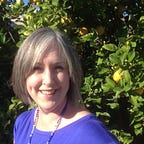How to connect with an editorial brains trust
Do your cat’s eyes glaze over when you ask it if you should use a semi-colon or a colon in the sentence you’re editing? Does your toddler run away when you wonder out loud who you can recommend to help an author who wants to self-publish a book?
Editing can be a solitary business, especially if you work as a freelancer. We all like to be able to bounce ideas off others from time to time and, when you work from home, your cat, dog, toddler or housemate may not always be receptive to your ideas.
Finding a group of like-minded people can be a lifesaver when you’re a freelancer.
While working on a recent collaborative photobook project with students from RMIT’s Diploma of Photography, a group of Advanced Editing students from RMIT’s Associate Degree in Professional Writing and Editing, including me, started our own editorial brains trust. We communicated via email as well as face to face, discussing a range of issues we were facing with our photobook projects and providing support to each other. Although we were working on our own individual photobooks, many of the issues we had were similar, such as which verb form to use, sticking to deadlines, and how to explain the process of editing text to our photographers who were used to editing photos.
But what if you’re not an editing student and you don’t know any other editors in your area? How do you find your tribe?
One of the best ways of finding other like-minded editors is to join your state’s branch of the Institute of Professional Editors (IPEd). Each branch runs numerous events throughout the year, which provide the perfect opportunity to get out and meet other editors. Even if the topic doesn’t really interest you, it’s worth going along just to network with fellow editors. Many events are very relevant to freelancers. Editors NSW had a meeting on 6 June 2017 about building an editor network, which covered tips for using social media and connecting with fellow editors. And Editors Victoria is hosting a live FAQ on 14 June 2017 where editors will use their collective experience and ideas to support each other and come up with solutions to tackle those tricky questions we all have about working as an editor.
Editors Victoria runs a bi-monthly freelance lunch for editors who work from home and don’t have regular face-to-face interaction with other editors. There are also regular meet-ups in North East Victoria, Gippsland and Geelong. Editors Queensland, the Editors Queensland Sunshine Coast sub-group and Editors WA also have meetings specifically for freelance editors. These informal meetings are very useful for connecting with others in the same boat. Discussions might include anything from rates and contracts to grammar and finding freelance work, and much, much more.
Another great way to connect with other editors and their collective brains trust is by joining some of the closed groups on Facebook. These groups are particularly good if you live too far away to go to events or if you’re shy and prefer to meet people in the virtual world. Members of IPEd’s Secret Editors’ Business have a wealth of knowledge about editing and freelancing and they are always happy to share their thoughts and experience. For editors who want a more global insight into freelancing, the international Editors’ Association of Earth Backroom is a great group to join. And because these are closed groups for editors only, you’re unlikely to find the author of the manuscript you’re editing on there, so if you need to vent a little you can. Note: You must be an IPEd member before you can join the Secret Editors’ Business group. To join the EAE Backroom, you must first join the free Editors’ Association of Earth public Facebook group.
There are some excellent, active LinkedIn groups for editors too, including Sally Asnicar’s Writers, editors and proofreaders: Information, discussion and support, Copy Editors’ Career & Resource Forum and Copy Editors and Proofreaders. You’ll find similar discussions to those on the Facebook groups, but the comments are often longer.
British proofreader and copyeditor Louise Harnby sums it up well when she says in her blog post: “Thirty years ago, freelancing could be a lonely business. In 2017, independent proofreaders and copy-editors chat, ask for advice, share knowledge and expertise, and learn … together. Facebook, Twitter, LinkedIn and editorial-society forums provide just some of the online spaces that editorial pros use to connect with each other. We work solo but the digital watercooler has never been busier.”
Editing may be a solo practice, but that doesn’t mean you are alone.
